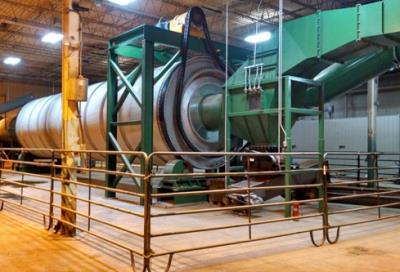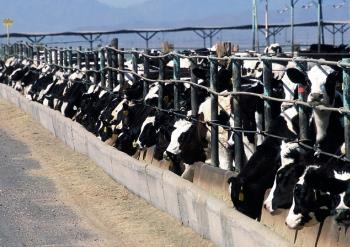Oregon Considering Legislation to Limit CAFOs—Implications for Egg Production
|
01/28/2021 |
|
Following the disaster of Lost Valley Farm in Oregon, legislators in that state have successively attempted to pass legislation banning concentrated animal feeding operations (CAFOs). Led by Food and Water Watch and supported by other environmental organizations, moratorium bills have been introduced into the Oregon legislature limiting construction or expansion of dairies with more than 2,500 cows.
In 1997, North Carolina imposed a moratorium on new hog farms using waste lagoons for manure disposal, based on environmental concerns.
In Congress Senators Cory Booker (D-NJ), Elizabeth Warren (D-MA), and Bernie Sanders (I-VT) have expressed their opposition to construction of new CAFOs, an issue raised during the 2019 Democratic Primary Campaign.
|

Uzelac Waste Processing installation on Layer complex |

Dairy CAFO |
With the election of President Joseph R. Biden and appointment of Tom Vilsack as Secretary of the USDA, the immediate issue of moratoria may be shelved. It is however evident that protection of the environment will be a more significant issue at both the federal and state levels. Fortunately commercial egg production using modern technology creates less environmental waste than either hogs or dairy.
The need for promoters of new large complexes to incorporate appropriate waste handling and disposal is self-evident. A number of egg producers have taken the initiative to install equipment to dry and pelletize waste that can be recycled as fertilizer. Anaerobic digestion with power generation could be applied to derive a financial benefit from waste.
|

|
|
|